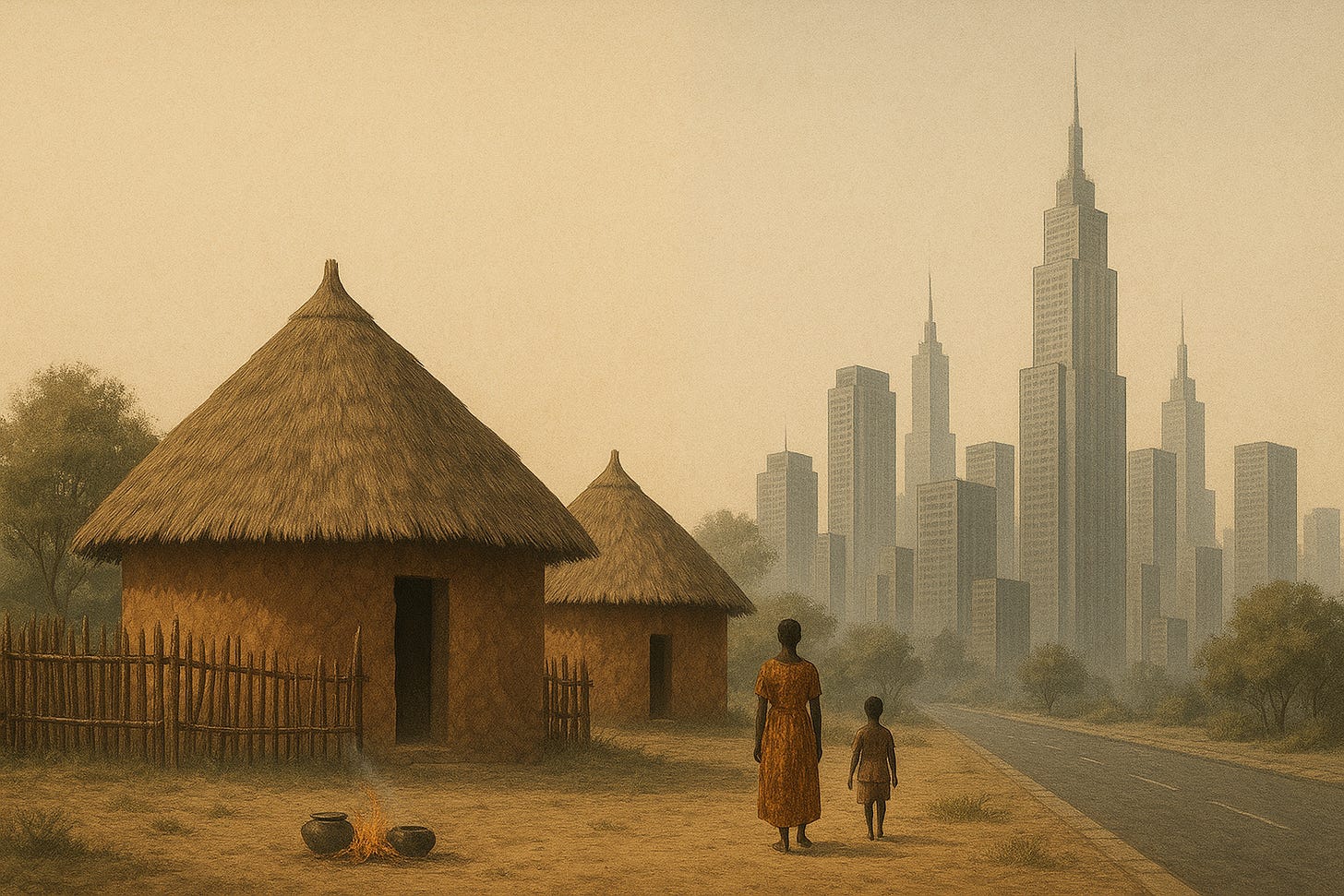Cultural Correction in Colonial Africa
A Quiet War for the African Soul
When we think of colonialism in Africa, images of conquest, forced labor, and partitioned maps come to mind. But beneath these visible structures was a quieter, more enduring campaign: the war for the African mind. This campaign—what we now call cultural correction—sought to replace African ways of thinking, speaking, worshipping, and governing with European ones. And though colonial rule has formally ended, the effects of this cultural war still shape African identity today.
What Was Cultural Correction?
Cultural correction was a system designed to sever Africans from their heritage and re-engineer them to fit into colonial systems. It wasn't just about language or dress—it was about transforming how Africans saw the world, their ancestors, and themselves.
The tools of this transformation were everywhere: mission schools punished children for speaking their mother tongues; churches condemned traditional religions; courts invalidated customary laws; and colonial governments elevated European moral codes while demonizing African spirituality and governance. In French colonies, to be a “civilized” African (évolué) meant abandoning local traditions and embracing French language and Christian faith. In Portuguese colonies like Mozambique and Angola, only those who renounced African customs and converted to Catholicism could become assimilados—Africans granted limited rights as near-Europeans.
Language as a Weapon
Language was the sharpest tool in the colonial arsenal. In classrooms across Africa, students were beaten for speaking Kikongo, Wolof, or Shona. Mastery of French, English, or Portuguese became a ticket to limited privilege—and a marker of being “modern.” Over time, African languages were reduced to “vernaculars,” unfit for official use or intellectual work.
The result? In countries like Mozambique and Angola, colonial language policies—and their postcolonial continuities—have led to a near-total dominance of Portuguese in media, education, and government. Indigenous languages like Umbundu or Makhuwa survive mostly in homes, with little support in public life. In Senegal and Zimbabwe, resistance movements have fought for the place of local languages, but structural inequalities persist.
Religion and Morality Rewritten
Cultural correction didn’t stop at speech—it reached into the soul. Missionaries sought not only to convert, but to morally reprogram Africans. Traditional religions were dismissed as superstition, sacred spaces were destroyed or repurposed, and ancestral spirits were cast as demons. Christian teachings were used to redefine gender roles, criminalize polygamy, and replace matrilineal systems with nuclear, patriarchal norms.
In many cases, conversion was the price of admission—to schools, to jobs, and to land. Christianity became a passport to survival in the colonial world, embedding foreign moral codes deep into African societies.
Governance Through Cultural Erasure
Colonial regimes also restructured governance. Traditional leaders were replaced or co-opted, and customary law was codified in ways that froze or distorted its meaning. European legal systems took over, replacing community-based justice with courts that emphasized punishment over restoration.
The colonial courtroom became a space where African values were dismissed, and compliance with foreign norms was rewarded. Even after independence, many African states retained these systems, governing with institutions that feel alien to the people they serve.
The Lingering Legacy
Today, the effects of cultural correction remain visible and visceral. African education systems still prioritize European thinkers over African ones. Speaking colonial languages fluently is still linked to intelligence, while native languages are often sidelined. Millions of Africans grow up estranged from their ancestral worldviews—not by force, but by design.
This legacy creates a crisis of coherence. People pray in one language, learn in another, and dream in a third. Governance feels imposed. Schools feel foreign. And modernity seems to demand the sacrifice of cultural authenticity.
Rethinking the Future: The Thinking Savannah Approach
But Africa need not remain in reaction. The Thinking Savannah philosophy—rooted in ancestral wisdom, ecological coherence, and intellectual sovereignty—offers a path of reclamation.
This path begins with language revival, spiritual reawakening, and institutional reimagining. It calls for early childhood education in mother tongues, the inclusion of traditional elders in governance, and a return to community-based justice systems. It insists that African modernity must grow from African soil—not from imported models.
The Thinking Savannah does not reject technology or global dialogue. It calls instead for an Africa where progress does not mean imitation, and where the future is shaped not by colonial residue, but by cultural inheritance.
From Cultural Correction to Cultural Coherence
Cultural correction aimed to erase coherence in African life. But coherence can be restored. When language, law, and learning arise from a shared cultural root, identity becomes not a negotiation—but a foundation.
The legacy of colonialism is heavy, but not final. The savannah, after all, is not barren. It is fertile—ready to grow again, if we plant the right seeds.
Call-to-Action:
🔁 Share this post with someone working on decolonial education, African literature, or public policy.
🧠 Join the conversation: What part of cultural correction still shapes your daily life or work?
💬 Reply or comment below—we’d love to hear your story.


